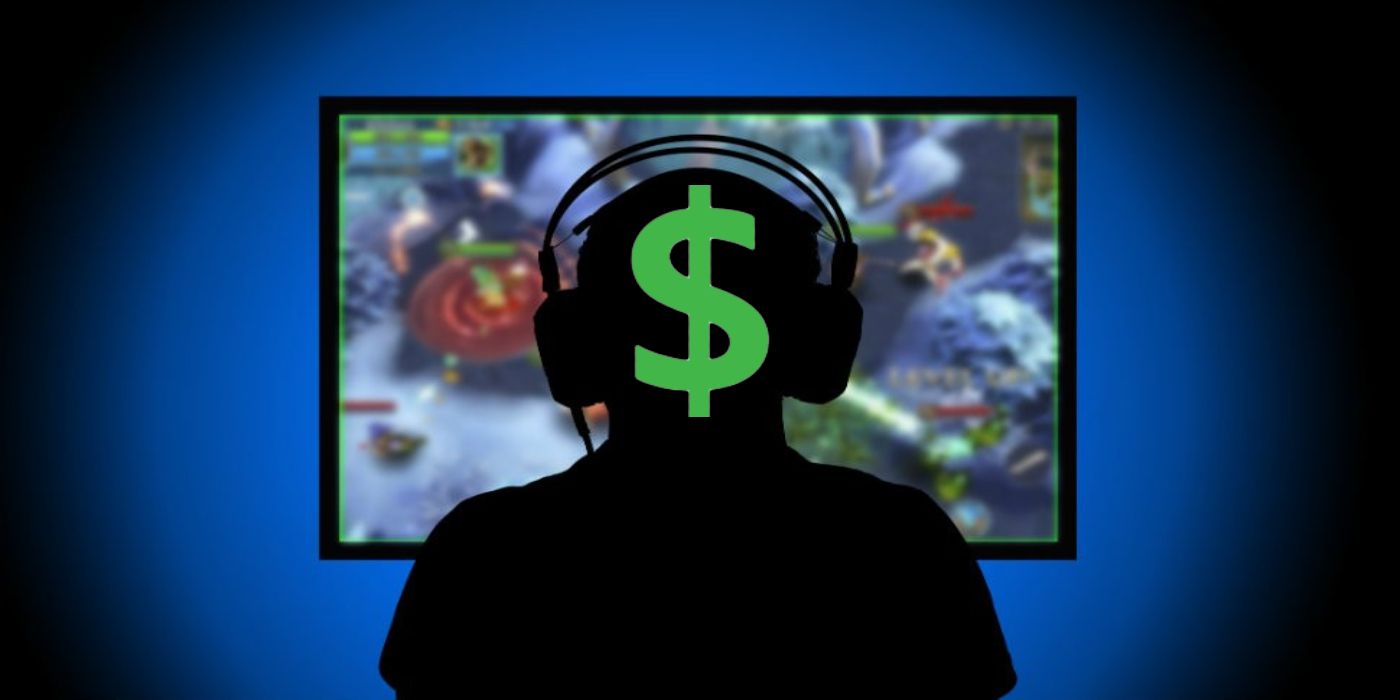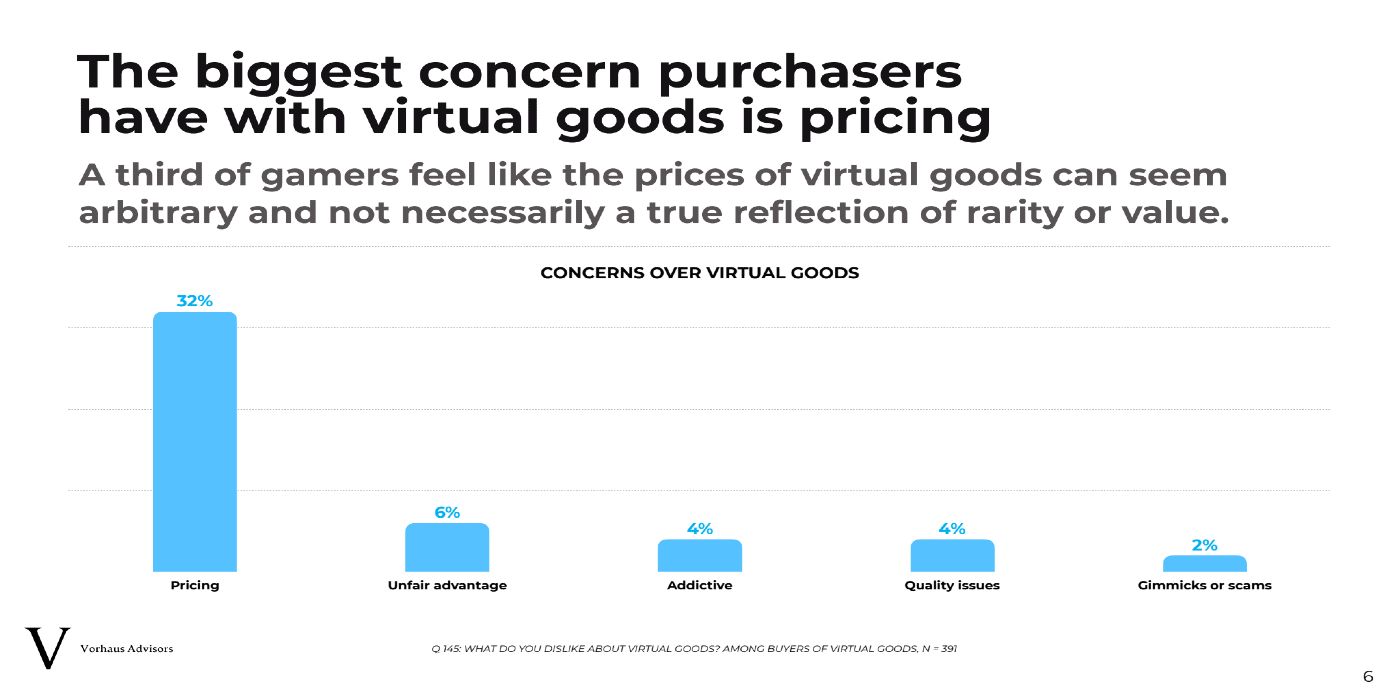A survey conducted by Vorhaus Advisors regarding video game virtual goods has some interesting findings for fans of the industry. Vorhaus Advisors surveyed 2,268 consumers, and its report finds that many gamers would purchase more in-game virtual goods if they had real-world value that could lead to income.
The study shows that 63 percent of gamers would spend more money on in-game virtual goods if they had real monetary value, and 64 percent said they would play more often. While in-game purchases can range from cosmetics to in-game currency, most purchases contribute to adding content into the game. However, 32 percent of gamers surveyed are concerned with arbitrary pricing of virtual goods, 6 percent are concerned with virtual goods granting an unfair advantage, and 4 percent are concerned with addiction to virtual purchases.
Based on the survey, Vorhaus Advisors believes turning virtual goods into "virtual assets" would lead to more income for developers and an open marketplace for buying, selling, and trading virtual assets. Although there have been some virtual goods marketplaces for games like Counter-Strike: Global Offensive or on the community-driven Steam Marketplace, Vorhaus Advisors looks to new technology to implement a safe virtual goods marketplace.
Vorhaus Advisors references blockchain technology as a way to benefit a marketplace for gamers. The study found that 40 percent of people surveyed were most interested in the peer-to-peer virtual goods trading using blockchain, and many would enjoy the privacy of blockchain technology. Blockchain technology would allow the creation of one-of-a-kind assets that gamers would completely own and be free to sell or trade in a digital marketplace.
Vorhaus Advisors CEO Mike Vorhaus said, "Our survey findings indicate we are just beginning to scratch the surface of how companies can monetize their games. It also shows that there is already consumer desire for blockchain-enabled features like virtual goods ownership, and the ability to earn income from playing games."
The downside to allowing gamers full ownership of digital assets is that it could potentially encourage gambling, and would need necessary regulation on in-game and consumer pricing. Major publisher Electronic Arts has been accused of encouraging gambling with loot boxes and microtransactions.
Sports simulations including FIFA and Madden feature game modes with tradable player cards, which can be purchased with real currency and sold on an in-game marketplace for virtual currency. The practice has even led to EA being hit with a massive fine in Europe over loot boxes.
A European survey of 1,500 parents with children 16 and under were asked about loot boxes and 74 percent responded that they believe loot boxes are a form of gambling. While the problem still rages on, parents are trying to find ways to prevent their children from getting involved with in-game purchases. The survey conducted by Vorhaus Advisors was taken by adults over 18 and focuses on gamers self-reported as having "ever played games on console, PC, smartphone, [or] web browser." However, based on the report, blockchain technology may help regulate fairness in the market and prevent children from being involved.


